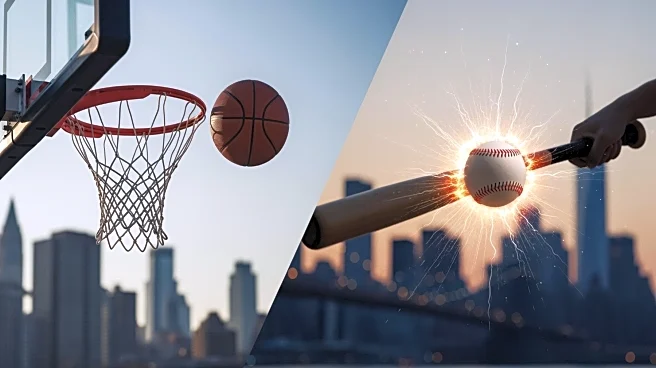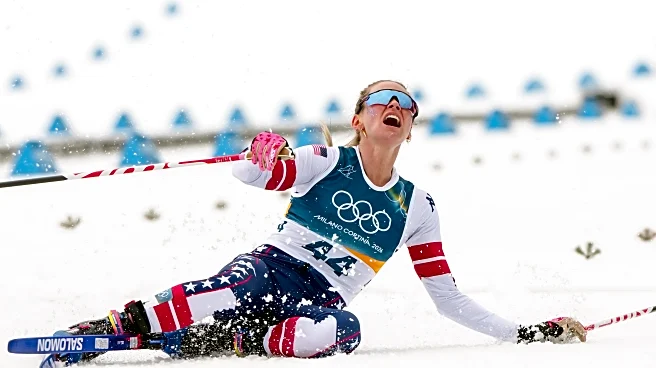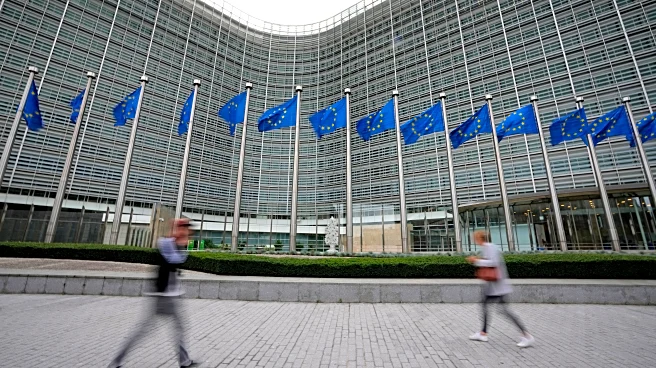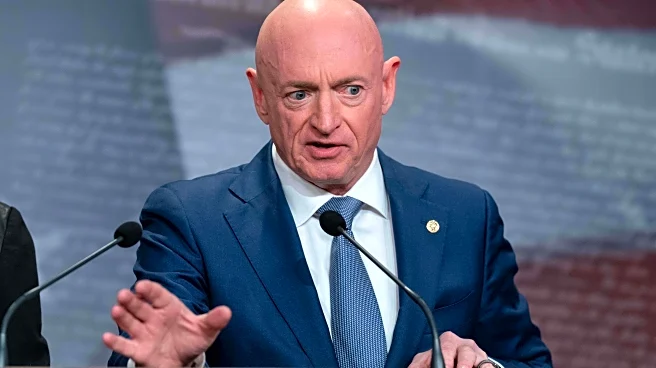What's Happening?
A recent study conducted by Casino.ca has identified New York as the most stressful sports city in America. The study evaluated stress levels among sports fans in major cities based on factors such as win
percentages, close losses, championship droughts, upset losses, attendance swings, rivalry intensity, historical heartbreaks, and player or coach movement. New York topped the list with a stress score of 91.2 out of 100, largely due to the city's intense media pressure, fierce rivalries, and postseason exits. The New York Red Bulls were noted as the most stressful team in MLS, while other New York teams like the Yankees, Knicks, Giants, and Jets contributed to the city's high stress score.
Why It's Important?
The ranking highlights the emotional investment and pressure faced by sports fans in New York, reflecting broader cultural and economic implications. High stress levels can impact fan engagement, ticket sales, and merchandise revenue, influencing the financial health of sports franchises. Additionally, the intense media scrutiny and rivalry dynamics in New York can affect team performance and player morale. Understanding these stress factors is crucial for sports management and marketing strategies, as they seek to enhance fan experiences and maintain loyalty amidst competitive pressures.
What's Next?
Sports franchises in New York may need to address fan stress by improving team performance and managing expectations. Strategies could include enhancing community engagement, offering stress-relief initiatives, and fostering positive media relations. As teams prepare for upcoming seasons, they might focus on building resilience and addressing areas of historical disappointment to mitigate stress factors. Stakeholders, including team management and city officials, may collaborate to create a supportive environment for fans, potentially influencing future rankings.
Beyond the Headlines
The study's findings could prompt discussions on the psychological impact of sports fandom and the role of media in shaping fan experiences. It may also lead to considerations of how sports culture in New York influences broader societal attitudes towards competition and success. The ranking could inspire other cities to evaluate their sports environments and explore ways to enhance fan satisfaction and reduce stress.









